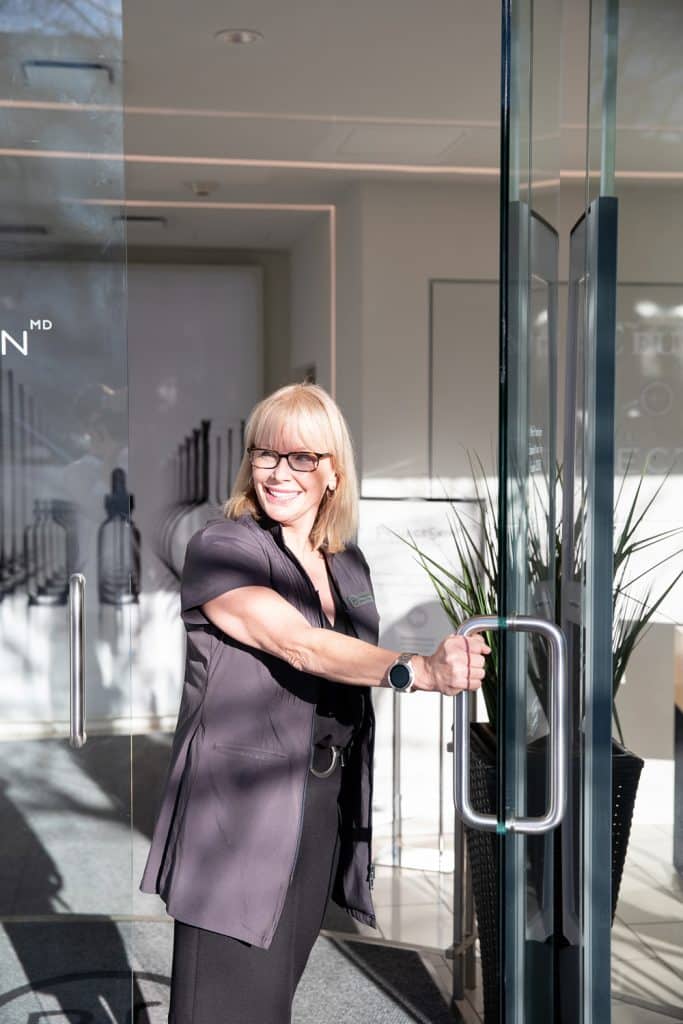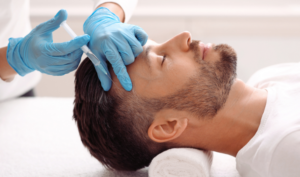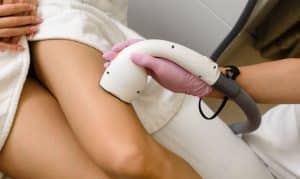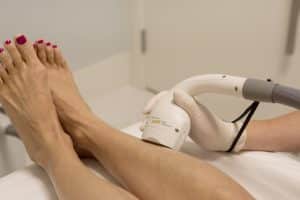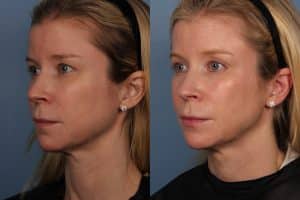By Roxanne Hallgren, RN, Cosmetic Sclerotherapy Nurse
As a Registered Nurse specializing in Cosmetic Sclerotherapy, I know how overwhelming it can be to choose a vein clinic!
To help you in this process, here are some questions you should ask when seeking treatment for varicose, reticular, and/or spider veins.
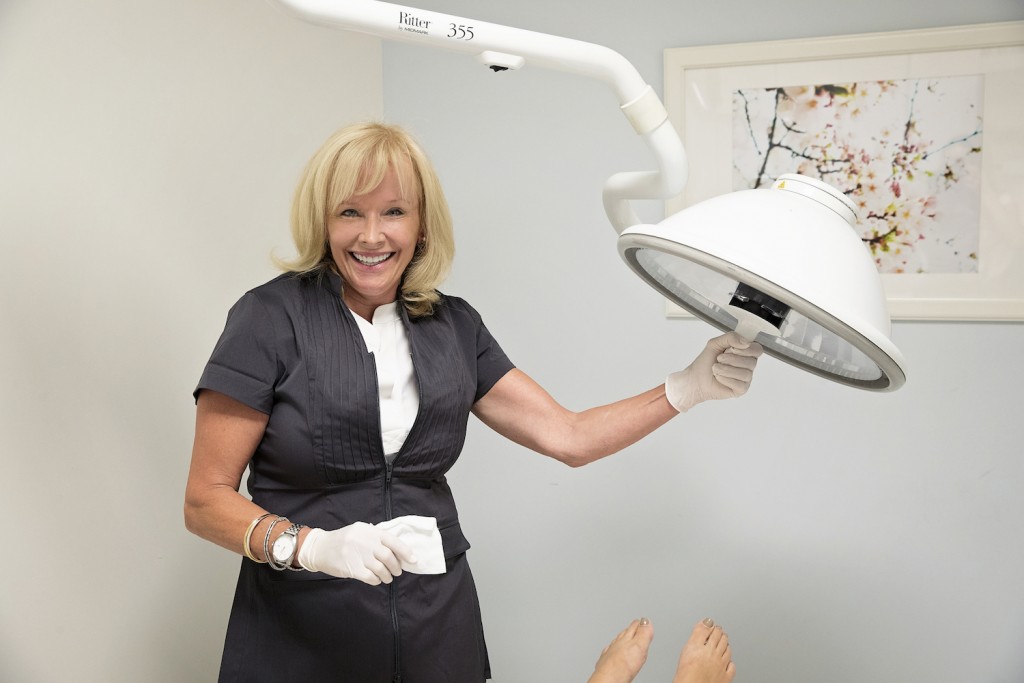
Who will be doing your assessment and treatment?
Is it a physician, nurse, or allied healthcare person? Do they have a background in Phlebology (the study of veins)? How many years have they been assessing and treating veins, and more importantly how often do they treat veins?
With regards to competency, The Canadian Society of Phlebology offers physicians and nurses the ability to attain what is called an Elected Fellow membership. This membership shows that the nurse or physician has met a certain set of educational criteria related to the study of veins. Be on the lookout for this membership!
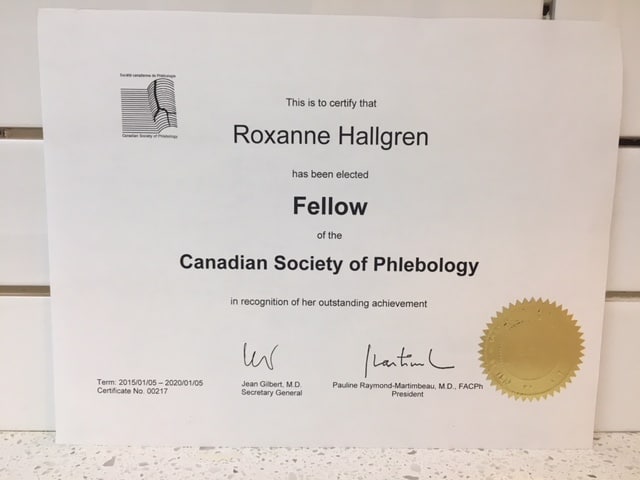
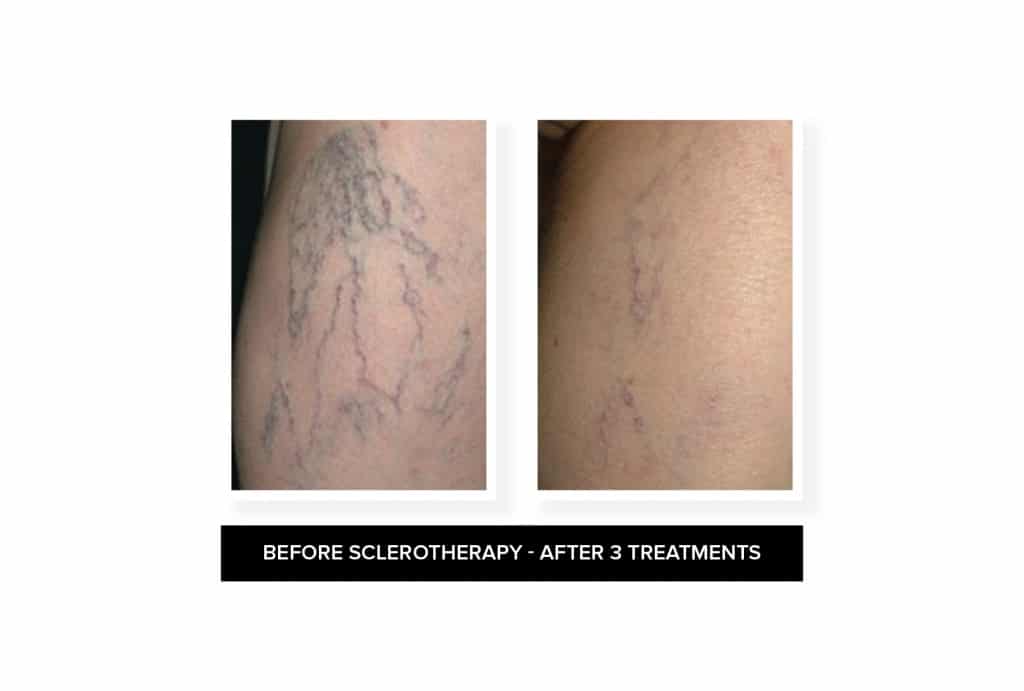
Does the clinic have an ultrasound so they can image veins?
Not every patient will require an ultrasound, but once we start treating larger veins it is critical for us to be able to do a vein mapping before commencing treatment.
At your assessment, are you asked to fill out a detailed health history form?
This form should ask general questions about your health but also include the following questions: do you have any blood clotting disorders? What medications have you been taking over the last year? Are you currently breastfeeding? Do you have any long flights planned? Do you experience migraine headaches with aura?
This health history should be reviewed in detail with you followed by a physical exam, and if indicated, an ultrasound before any treatment is started on your veins. In addition, the risks, expectations, costs and estimated number of the treatments required should be verbally reviewed with you by the physician and/or nurse who will be treating you.
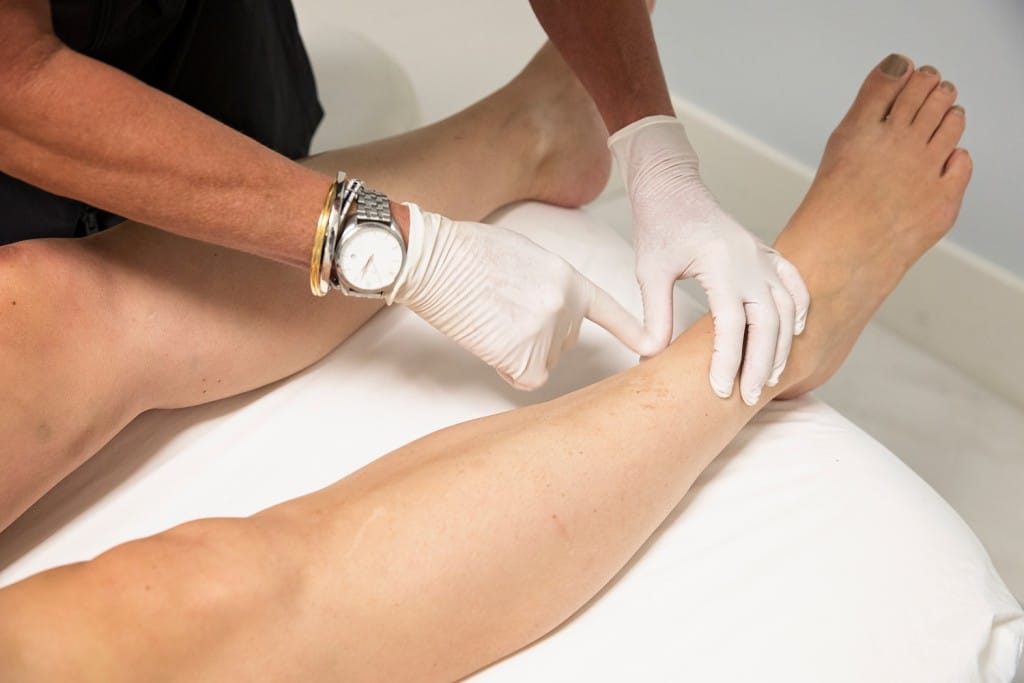
Is the nurse and/or physician able to explain to you the basic anatomy and physiology of the venous system in lay terms?
They should discuss how genetics play a major role in the development of spider and varicose veins, and what conditions exacerbate this genetic component such as pregnancy, hormones, standing still and wearing constrictive clothing. For those who are predisposed to spider and varicose veins you want to hear about graduated compression hose and maintaining or developing a good calf muscle to help pump the venous blood back to the heart.
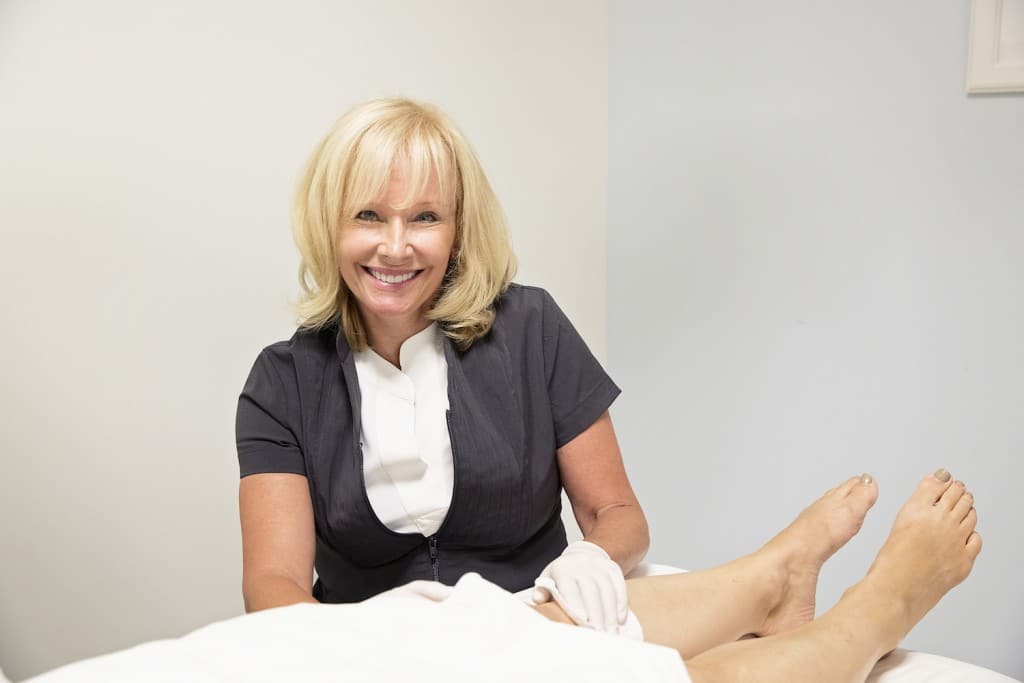
Does the clinic you’re looking into refer out to other specialists in Phlebology?
Sometimes after doing a vein mapping with the ultrasound we see that the venous anatomy is too complicated for us to treat and we need the patient to see a specialist. It is important to know that the clinic has a good relationship with other people or specialists in Phlebology and can call upon them.
If all of the above criteria have been met, you should feel comfortable going ahead with a venous assessment. Before you undergo treatment at Project Skin MD, I would be happy to answer each and every one of these questions, along with any others you may have.
